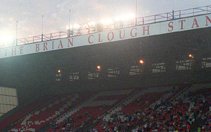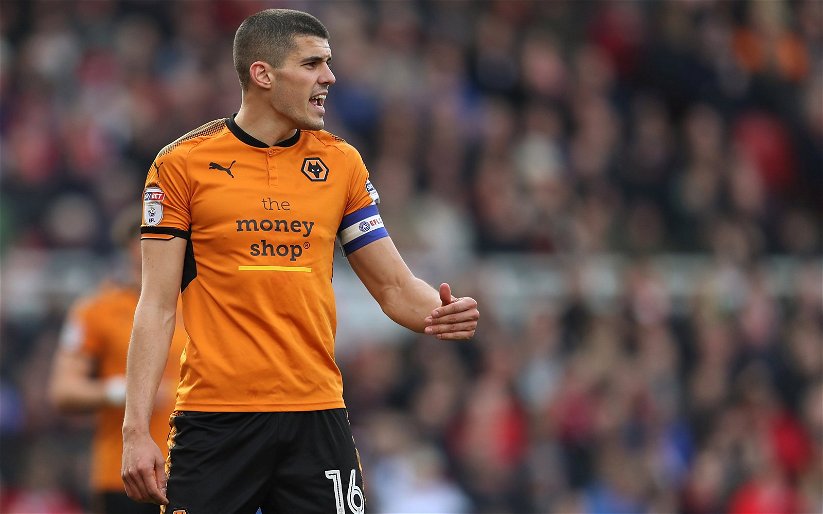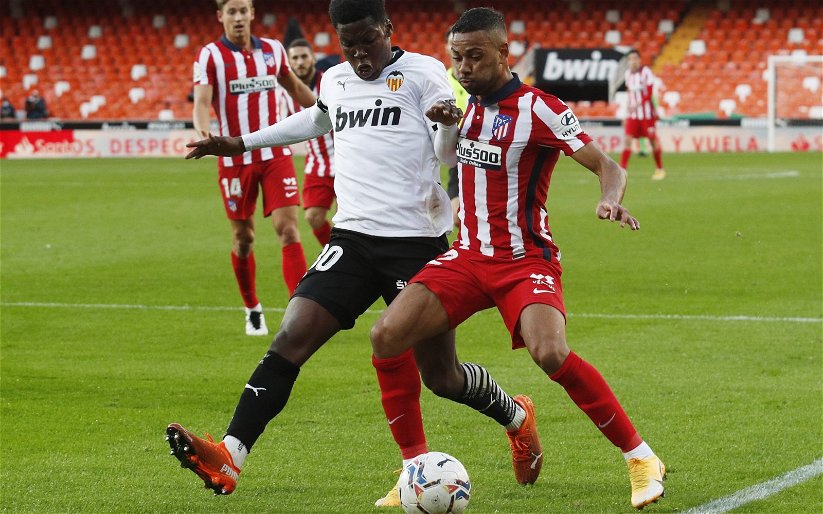Winter 1991. Wolves are playing West Ham, the runaway leaders of the Second Division who are fresh from a 5-0 demolition of First Division Luton Town in the FA Cup. The then West Ham manager Billy Bonds describes the Londoners` trip to Molineux as the toughest game of the season and the Wolves fans accede, as the winter sun disappears behind the dilapidated stands the fans can taste the expectancy and the volume increases. They expect Turner`s side, their team, playing 4-4-2 with two orthodox wingers can compete with the fluid pass-and-move of the East London side. This is a big game atmosphere: the Black Country upstarts against the football aristocrats. The home team responds, Wolves score through Birch just before half-time and Bull makes the points safe in the second half. This is the epitome of what being a Wolves fan is about, true to the traditions of the club, moving the ball wide quickly to Mullen or Dennison before placing it on a tee for Wilshaw or Bull.
Summer 1994. Graham Taylor, damaged by the expectations of England is in his first and only full season at Wolves, with the first home game of the season against Mark McGhee`s Reading, newly promoted to the First Division. Wolves approach is the sheen of the new and expensive, Daley, Froggatt and Kelly, bristling in a rebuilt and refurbished Molineux. The crowd is touching 28000 and the expectation of a comfortable win against the newcomers clings to the stadium like a virus. Wolves win 1-0, but those watching knew that there was something awry. So it proved. Reading finished the season second and Wolves below them in fourth. There is no substitute for graft and craft, not even Hayward`s offshore bank account.
In spite of a multitude of attempts to the contrary, Wolves have been in a steady spiritual, if not actual decline ever since, overly reliant on the cult of the player, replacing art with artifice, tenacity with patience and tactics with strategy. After a decade of deterioration, the gutter was finally plumbed with a desperate 2005/06 season under Glenn Hoddle. Experienced players told to be patient by their manager, were perceived by the crowd to be disinterested. Willed by the fans to attack, their dilemma caused them to make mistakes, with their best performances coming away from the Molineux money-pit, where fans` expectations were lower. The virus had turned to poison. Molineux was no longer a nice place to be, the lightness of hope and expectancy of the Turner years replaced by the turgidity of another financially-bloated season sagging like a second-hand condom, filled with the expectation of conquest, but dripping with the numb realisation of another wasted opportunity.
As has been well documented, the egress of Hoddle was perhaps the best thing that has happened to Wolves in the last ten years. McCarthy, skilled in cutting cloth, wringed out a succession of wonderful results and, less prolifically, superb performances. Wolves fans were aware that when they paid their money, they would at least see a team that had the appearance of wolves, tracking their prey, snapping at heels, devouring the opportunity to attack. The young wolves of Keogh, Potter and Henry revelling in their status as Wolves, basking in the sunshine of a smaller, more tightly concentrated crowd that, surreally at times, applauded the team even when they were sent scampering with their tails between their legs. This was a snap reversal of earlier seasons, lots of craft, yet lacking guile. But, as the team grew and matched the exerts of the top sides in the division, it was apparent that Wolves needed that extra nous, the selfish centre-forward, the extra-sensory defender, if they were going to be serious contenders. Yet the fans didn`t seem to mind too much. This was a Wolves team in their image, epitomised by a young winger trickier than Paul Daniels on speed. With the rest of the modern era swilling with cash, this was a pauperised, ravenous Wolves side swaggering into the play-offs by virtue of mauling the other canines of the division in their own den.
Wolves weren`t promoted, but the sands shifted as the club announced that the club would – once again – be competing with relegated teams on a financial as well as a sporting level. There was widespread bemusement, just as we had found the soul of the club, it seemed as if it were to be sold again, to someone who has little more than a passing interest in its general well-being. By the same token, how is it possible to turn down a present of £30M? As Wolves fans, we should know better, that the gift turns sour when it`s unwrapped. The signs, however appear good; both McCarthy and more controversially, Moxey remain and the policy of a strict wage structure coupled with the employment of youngsters has been maintained. What then, can we expect for the coming season?
The least that any football fan can expect is hard work, dedication and application from their team. This should be a given whether following Nuneaton or Nice. Anything less is unacceptable, but it is amazing how long we endured the apathy endemic to the condition of players not chasing the ball, but one last pay-cheque. Judging by McCarthy`s signings, we should expect to see goals for two reasons. Firstly, Kightly may be a marked man this season, but he will evolve his game and become stronger as the season wears on, Jarvis will be a useful foil, and, with this service from two orthodox wingers, the forwards will have plenty of opportunities. Personally, I expect Elliot to be our top-scorer as I think Eastwood will take six-months to settle in. Secondly, our defence, which supports the attack by playing high-up the field, has a tendency to be caught on the counter-attack if the midfield is by-passed, resulting in plenty of opportunities for the opposing attack. We should win more than we lose, but I expect games, especially away from home, to be as tight as last season.
The new money means an exponential increase in expectation from all sides of Molineux. It is somewhat clichéd, but the salubrious support of last season, evidenced in smaller crowds but greater noise, may be augmented by others who watched last season with growing interest, and are then convinced to return by the addition of a couple of £Million signings. This should be welcomed as a growing fan-base is a sign of healthy club. Problems may occur, however, if we don`t win for a significant length of time and the fans turn. A significant number will always support the team, but the vocality of a taunting, disappointed support will always out-heckle the silent majority. Naturally, this transmits itself to the pitch, as we have seen so often over the years. The worst thing that can happen is if this is transferred to the boardroom, and Morgan, who, understandably, wants a quick return on his cash feels the pressure of results and releases McCarthy. As the current Wolves is a team very much created in the manager`s image, it would be a catastrophe if he we were to go: the signs are that McCarthy is here for the long-term, and we need to recognise that.
I have concentrated on the fans throughout this article and not always in a positive way. The reasons are legion. But consider this: can you recall any time in recent football history when a team that lost 6-0 at home was applauded from the pitch? Even Turner, losing to Barnsley 5-0 in the 90`s was not extended this courtesy, in spite of what he had achieved. It was unlike anything that I have witnessed at football match and this bond of trust and respect between players and fans is our greatest asset. This cannot be bought, this is a special voluntary contract between pitch and terrace, a reciprocal appreciation of the importance of the tradition and history of the football club. We can expect this season, but we must limit expectation and allow the team to thrive accordingly. We have a responsibility to the team and we have the right to expect their full and unerring commitment. Expectancy will encourage the team to thrive, expectation will suffocate. Which side will the fans fall on when the team – our team – need us most?
Share this article


